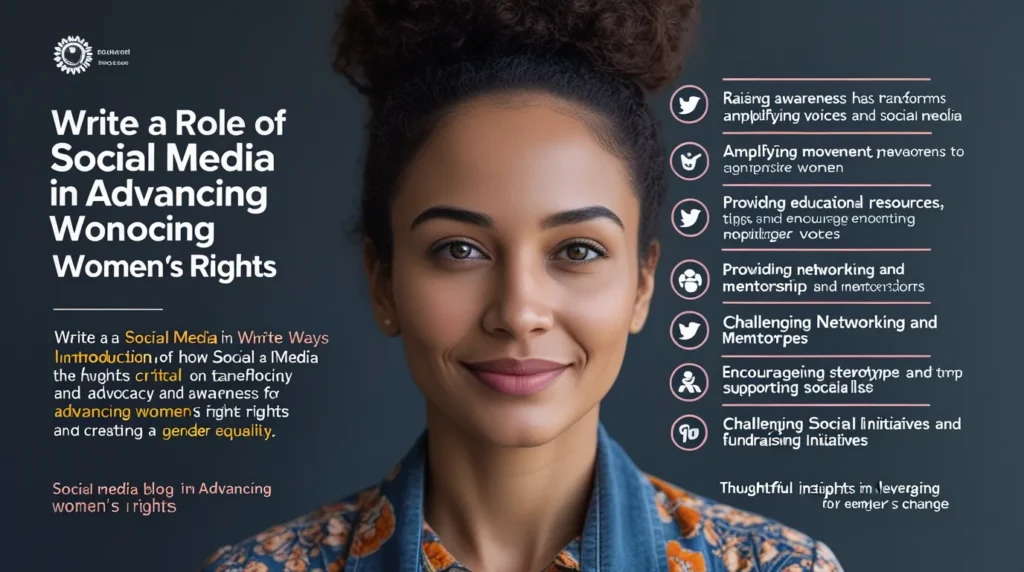Social Media in Advancing Women’s Rights
Social media has transformed the way we communicate, connect, and advocate for change. Over the past decade, it has played a pivotal role in advancing women’s rights, giving a voice to those who were previously unheard, and creating global awareness about gender inequality. From mobilizing movements to educating communities, social media platforms have become powerful tools for promoting women’s empowerment and gender equality.
1. Raising Awareness
Social media platforms such as Twitter, Instagram, and Facebook allow activists to highlight issues like gender-based violence, wage gaps, and discrimination. Hashtags like #MeToo, #TimesUp, and #HeForShe have gone viral, creating global conversations about women’s rights.
💡 Impact: Awareness campaigns inspire dialogue, encourage policy change, and help victims find support networks.
2. Amplifying Voices
Women from all backgrounds can now share their stories, experiences, and achievements online. Social media eliminates geographical barriers and traditional gatekeepers, allowing underrepresented voices to be heard.
💡 Example: Female entrepreneurs, educators, and activists can reach a wider audience to showcase their work and inspire others.
3. Mobilizing Movements
Social media enables rapid organization of protests, petitions, and campaigns advocating for women’s rights. Virtual campaigns can turn local issues into national or even global movements.
💡 Example: Online petitions or coordinated awareness days can influence policymakers and drive legislative change.
4. Providing Educational Resources
Platforms like YouTube, LinkedIn, and online forums are used to share educational content on women’s health, leadership, financial independence, and gender equality.
💡 Impact: Access to resources empowers women to make informed decisions and develop skills for personal and professional growth.
5. Encouraging Networking and Mentorship
Social media connects women with mentors, role models, and support communities. Networking groups on Facebook, LinkedIn, or niche forums provide guidance, encouragement, and professional opportunities.
💡 Tip: Join groups that focus on women’s empowerment, career development, and social activism.
6. Challenging Stereotypes and Cultural Norms
Through storytelling, campaigns, and viral content, social media challenges outdated stereotypes and promotes progressive thinking. Women can highlight achievements in areas traditionally dominated by men, inspiring societal change.
💡 Example: Highlighting women in STEM, sports, or leadership roles encourages younger generations to break barriers.
7. Fundraising and Support Initiatives
Crowdfunding platforms and social media campaigns help raise funds for women’s education, health programs, legal support, and entrepreneurship initiatives.
💡 Impact: Financial support through social media campaigns empowers communities and creates tangible change.
Challenges to Consider
While social media has immense potential, challenges include online harassment, misinformation, and digital inequality. Ensuring safe online spaces and promoting digital literacy are crucial for maximizing its positive impact.
Final Thoughts
Social media has revolutionized advocacy for women’s rights by raising awareness, amplifying voices, and fostering global communities. It empowers women, challenges stereotypes, and mobilizes change in unprecedented ways. By using these platforms responsibly and strategically, individuals and organizations can continue to advance gender equality and create a more inclusive world.

